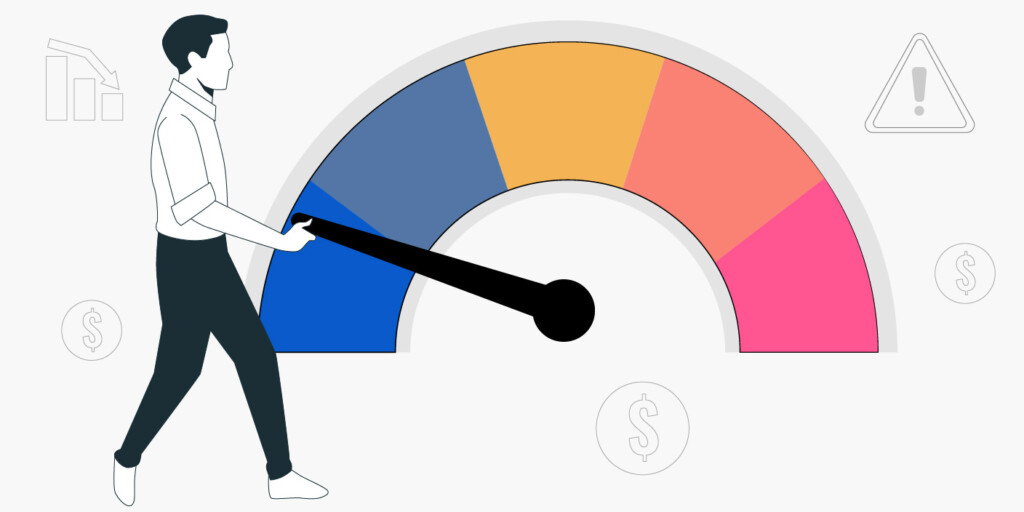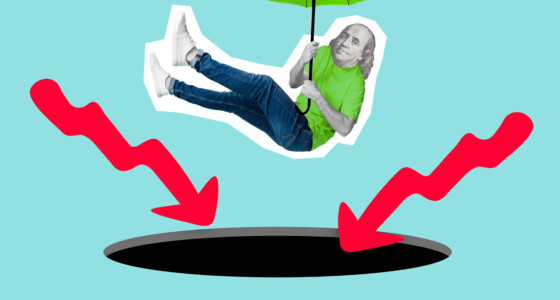

Understanding yourself is a vital foundation for achieving personal and professional goals. And you don’t even have to conform to a particular image or set of expectations. For example, Warren Buffett didn’t pretend to be a charismatic and extroverted business leader to become a business magnate. He was introverted, humble, and frugal. In fact, he was so thrifty that he famously lived in the same house he purchased in 1958. But his personality traits have played a significant role in his career.
Are you intrigued? Then discover how individual personalities influence the way you make choices and determine your results here.
Risk tolerance

“Successful trading requires aligning your decision-making style with your personality traits. For example, if you’re naturally risk-averse, you might excel in a trend-following strategy, while a more risk-tolerant trader might thrive in short-term, high-frequency trading.”
Dr. Van K. Tharp, a renowned trading coach and author
Different risk tolerance profiles have their advantages and disadvantages. High risk tolerance can lead to lucrative opportunities and potentially exceptional returns, but it also exposes you to substantial risks. Low risk tolerance, on the other hand, offers more stability and protection against market volatility, but it tends to limit your potential for significant gains.
But do you know what’s more important than being one or the other? Knowing where exactly your personal risk tolerance falls into and choosing strategies that align with it. That will be the basis for achievements.
Emotional stability
This is about the ability to maintain composure, manage emotions, and make rational decisions even in high-pressure situations. Emotional stability plays a crucial role in navigating the often turbulent and emotionally charged world of trading, as you’d expect.
But contrary to popular belief, being emotionally stable doesn’t mean completely eliminating emotions from the trading process. Emotions are a natural part of human behavior and can provide valuable insights. You just have to achieve the balance, as too many emotions will cloud your judgment, while no emotion will deprive you of important cues and instincts.
Discipline and patience

Lacking discipline is the road to impulsive decisions and emotional trading. And impatience breeds hasty exits or entries, missing out on potential gains or getting trapped in unfavorable conditions. In contrast, disciplined and patient traders follow their strategies consistently, manage risk effectively, and make rational choices. They weather market fluctuations, maintaining a long-term perspective.
Here, the more discipline and patience you possess, the greater your chances of achieving trading goals. There is simply no such thing as too much discipline and patience in the world of trading.

Confidence and self-control

Confidence fuels a trader’s belief in their abilities and strategy. It empowers them to take calculated risks, stay resilient, and seize opportunities without hesitation. And self-control acts as the trading guardian, keeping impulses in check. If you have the right amount of confidence and self-control, you can achieve trading results like a well-oiled machine.
But don’t let yourself away in the completely opposite direction, either. Too much confidence turns into overconfidence and blind spots, and excessive self-control is synonymous with rigidity. Both extremes wouldn’t serve you well.
Decision-making styles
“By embracing a decision-making style that complements your strengths and suits your trading objectives, you can improve your ability to navigate the markets effectively.”
People with different decision-making styles bring their unique approaches to the table, shaping their trading results in intriguing ways:
- Directive individuals thrive on efficiency and results.
- Analytical traders dive deep into data, charts, and financial indicators.
- Conceptual decision-makers seek innovative strategies and spot unique market perspectives.
- Behavioral traders use their insights into human behavior to their advantage.
Once again, it’s not about conforming to a specific style but rather embracing and harnessing the strengths of your natural inclinations. And it’s absolutely crucial for you to understand what category you belong to. This will help you leverage your inherent abilities for maximum results.
Summary
The impact of personality traits and decision-making styles on trading is undeniable. Emotional stability, discipline, and patience provide a strong foundation, while confidence and self-control empower you to make calculated moves. Risk tolerance and decision-making styles shape your approach, leading to triumph in the dynamic trading landscape. By recognizing and harnessing these factors, you can navigate with confidence and embrace the transformative potential of your unique traits and styles.
Sources:
How Personality Affects Work Behaviour & Career Success, University College London
The Four Decision Making Styles: Which On’’s Your Style? The Virtual Hub









